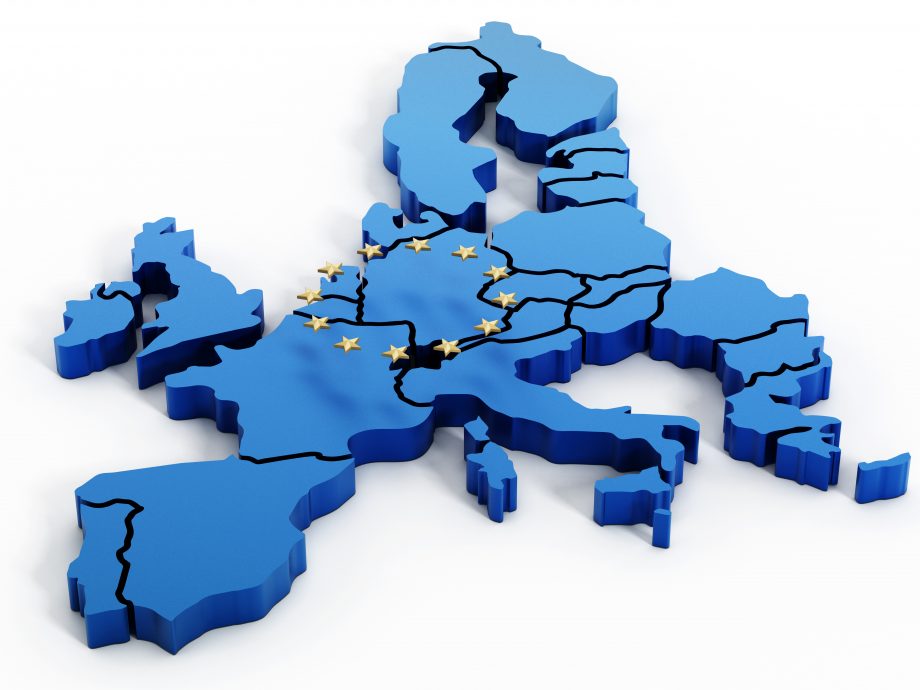President Trump's critics should supply a list of what they regard as his most problematic actions.
EU "Closer Union" Advocates Have an Ally in the Separatist Movements
A minister of the Tsarist Russian regime once said that the paralytics of the government were locked in a struggle to the death with the paralytics of the revolution. The struggle, as we know, did not end well.
In present-day Europe, there seems to be, if not a struggle, at least a seeming contradiction between centripetal and centrifugal forces.
The centripetal forces are those that, in logic if not yet in practice, would lead to the ever-closer union proclaimed to be the ultimate purpose of the European Union in its current form. Ever-closer union must mean, if it means anything, eventual total union. In fact the leader of Germany’s Social Democrats, Martin Schultz, recently called for a full United States of Europe within seven or eight years.
Writing in Le Monde, the Austrian Professor Ulrike Guérot, founder of the European Democracy Lab, a Berlin think tank, quotes Victor Hugo’s 1872 declaration: “One thing is certain, we shall have that immense thing, a European republic!” Adds Guérot:
One market, one currency, one democracy ought to be the 21st Century’s project. In other words: one Euro, one International Bank Account Number, one social security number for everyone.
You can’t get a much closer union than that!
On the other hand, there are centrifugal forces. Flemish nationalists want independence from Belgium, which of course would then cease to exist. Scottish nationalists want independence from Britain, Catalonian and Basque nationalists from Spain, and Corsican nationalists recently won the local elections in Corsica. There is a northern Italian movement in favor of disembarrassing that prosperous part of the country of its perpetually impoverished south. Some Bavarians want independence from Germany.
But the differences between the two visions are by no means as stark or logical as might be expected. Consider that most of the separatist movements are strongly pro-European (that is, in the sense of favoring the European Union). This seems strange in so far as the EU would destroy or replace national sovereignty.
Moreover, at least some of the separatist feeling is thought to have an economic grievance behind it. Catalonia is more prosperous than the rest of Spain, and its taxes subsidize other parts of Spain. The same is true of Flanders, which subsidizes fellow Belgians in Wallonia. The same is, as mentioned, true for (or at least asserted by) the northern Italians.
It is not true of the separatists in Scotland, which receives subsidies—to say nothing of Corsica, totally dependent as it is on the rest of France. But to spend subsidies is hardly more blessed than to pay them, and gratitude is not a political emotion.
What of national oppression? Certainly, the Catalonians felt oppressed by the Franco regime. In Wales, another recipient of subsidies, and within living memory (I have a friend who remembers it), children could be punished for speaking Welsh on the playground. The language question is more complex than this might suggest: Certainly there were Welsh-speaking parents who did not want their children to grow up speaking Welsh, those of the great poet Dylan Thomas, for example. They felt that speaking Welsh was not merely useless but actually harmful to the prospects of young Welshmen and women. But still, the experience of being punished for speaking one’s native tongue in one’s native land is bound to create a certain resentment, even if it was now quite a long time ago.
Similarly, the longstanding asymmetry, in Belgium, in the status and prestige of French (which the Walloons speak) and Dutch (which the Flemish speak) created resentment. The Flemish aristocracy or haute bourgeoisie spoke French not Dutch; the educated Dutch-speakers learned French but the French-speakers didn’t learn Dutch. Even now, a hundred years after the Great War, many of the Flemish have neither forgotten nor forgiven that while the Belgian army officers in that conflict were French-speaking, the Belgian infantrymen, the cannon-fodder, spoke Dutch and could neither understand the officers nor be understood by them.
In contrast, the northern Italians can hardly complain about oppression by the southern; and unlike the Irish, the Scots have little to complain of at hands of the English at least in the past two centuries. The Scots were among the greatest advocates and beneficiaries of the British Empire; and far from being an anti-imperialist movement, Scots nationalism is a consequence of the decline and fall of empire rather than a rejection of British imperialism.
It is generally a fact that people dislike their near neighbors more, and even much more, than they dislike distant ones. Since dislike or hatred is by far the strongest political emotion, it is perhaps not surprising that people in search of an identity find it in distinguishing themselves, usually with dislike, from their nearest neighbors. Then too, there is the search for identity in modern conditions, in which even in supposedly small countries, large cities make anonymity the normal daily experience of the majority. In such conditions nationalism, like tattooing and piercing, becomes a shortcut to personal identity.
But having said all this, we still have not explained why nationalist centrifugalists, if I may so call them, are so eager to form an alliance with EU centripetalists, who wish to efface the very thing the nationalists claim to be seeking. Several hypotheses are possible, and none susceptible of final proof.
The first is that that these nationalists are not even aware of the contradiction. Few of us are logical calculating machines who work out the full implications of our beliefs, let alone always act in our own best interests. I am only too aware that I have no consistent doctrine of life, morality, or politics, that I am not even consistent from day to day or moment to moment, and am, on the whole, quite untroubled by this. Entirely consistent men are apt to be spine-chilling.
Second, nationalist dislike of immediate neighbors, whether the explanation for it be reasonable or unreasonable, may loom so large that it overcomes logical thought. Jumping out of frying pans into fires is a well-known human phenomenon.
There is a third explanation, which is that the leaders of the nationalist parties or separatist groups want there to be more places at the top table—vacancies that they would then fill. They might even rise to the dizzying heights of the former Prime Minister of Luxembourg, who has long bestridden the world, or Europe at any rate, like a colossus. This he could never have done without the existence of the EU. In other words, personal ambition and the megalomania of petty potentates.
But what should be the attitude of leaders of the European Union toward the potential fracturing of the EU member states as they are at present constituted? In the short term, EU leaders have to pretend to support the current arrangements, because for the moment power is concentrated in the hands of the leaders of those member states. If the power in Madrid or London begins, however, to seep away, the path to a Europe not of the nations but of (as Professor Guérot puts it) “the regions” is cleared. Then, as she says, the citizens of Europe “will elect their president by direct universal suffrage. Finished with the system of checks and balances . . . ”
I can’t wait for all those terrible checks and balances to be swept away. And, while we are at it, why should this process be confined to Europe? Is Professor Guérot a closet nationalist—even a racist? If Europeans can, why can’t the entire population of the world, elect their president (of a Republic of the World) by direct universal suffrage?



